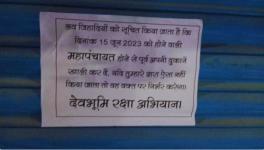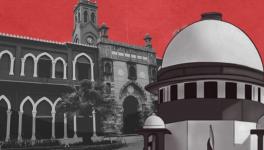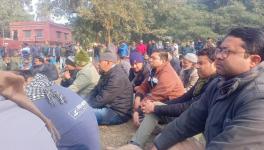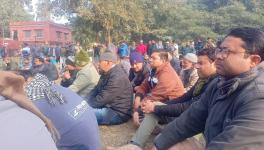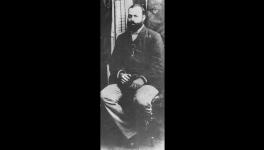From South Springs Hope of Reform of Muslim Personal Law

Recently, the Al-Ansaar Foundation in Hyderabad, a literary society, invited me to speak at the release of a three-volume history of the 150-year-old residential theological seminary, Madrasa Nizamiya, founded in 1872 by Anwarullah Faruqi, a theologian of high repute. For various reasons, I decided to raise the issue of reforms within the Indian Muslim community in my address at the gathering, which would include numerous noted theologians.
I wanted to ask at the event: Are you, India’s Muslim intellectuals and theologians, prepared to reform personal laws, particularly on the caste and gender justice fronts? I also wanted to emphasise why this was important at this particular juncture of rising majoritarianism. After all, such a context invites Muslims to introspect to find a way out and devise new strategies for survival and growth.
While the Hyderabad event was an opportunity to make sense of the commitment to social and gender justice within the community and clergy, I recognise the constraints to the space for dissent against the established elites, even for other historically-advantaged Muslims. Another limitation arises from the challenges Muslims face in contemporary India. State-sponsored anti-Muslim hatred has been thriving as a corollary to vigorous anti-Muslim stereotyping since 9/11. Much communal venom is spewed via refashioning history (Muslim ruler-Hindu subjects) to create a narrative of perpetual conflict between Hindus and Muslims of India.
With these concerns and caveats in mind, I narrated at the event a recent news report about a Muslim couple in Kerala with three daughters and no male heir. Muslim personal law does not allow daughters to inherit the entire estate of their deceased parents. Nor can parents of daughters—couples who do not have a son—register a will, as this would defy Muslim personal law. Such couples have two options. They can transfer all their assets to their daughters, effectively becoming their dependents for the rest of their lives. Or they can register their marriage under the secular law of the Special Marriage Act. The Kerala couple, after three decades of marriage, went for the second option.
Muslim personal law in India also places considerable restraints on childless couples. If they do not want their next of kin to inherit their assets after them, they have no choice but to register their marriage under the SMA. Even through a will, they can cover just a third of their assets and no more under personal law. Sadly, even the option of registration under SMA is closed for the childless if one of the spouses has already passed away.
Therefore, I told the audience that if Muslim theologians and law boards stay stubbornly reluctant to reforms, the adversely-affected Muslim families will reach for secular laws. That, by proxy, would amount to adopting a Uniform Civil Code. Bushara Ali, a Muslim daughter, recently approached the Supreme Court to let them inherit parental assets equal to their male siblings. Her plea raises the question of law regarding Section 2 of the Muslim Personal Law (Shariat) Application Act, 1937. Is this section, by not giving an equal share to a female compared to a male, violative of Article 15 of the Constitution and therefore void as per Article 13?
My remarks, to my surprise, invited a receptive kind of alarm from theologians in the gathering, particularly from the representatives of a three centuries-old Sufi khanqah-cum-madrasah of Vellore in Tamil Nadu. It encouraged me to discuss other pending reforms.
Some years ago, the incumbent right-wing regime criminalised un-Quranic instant triple talaq in India. It did so to suit its political agenda to criminalise Muslim citizens and create a Hindu majoritarian State. However, it must be reiterated that instant triple talaq could be criminalised by the Hindu Right only because the Muslim clergy had failed to reform a practice that most Muslim-majority Asian countries had already done away with. Majoritarian forces have weaponised the stubbornness on talaq since 1986 (if not before). That year, Muslim reactionaries got Parliament to nullify the Supreme Court verdict on Shah Bano. We may soon see history repeating on other issues, such as equal inheritance for daughters, and in matters related to adoption and child custody norms.
I also pointed out that the Prophet Muhammad had adopted a son, Zayd, who, by his own volition, chose to remain in the Prophet’s custody until his death. Thus, custody is quite Islamic. Even if biological parentage is made known to the child, adoption is still not prohibited in Islam. But the Muslim Personal Law Board is not making such reforms to help the Indian judiciary.
Another domain awaiting reforms is that of depriving children who are orphaned while their grandfather is living. Such orphans are not allowed to inherit the property of their grandparents. Verses 8, 9 and 10 of the Quran’s chapter on women (surat-un-nisa) hardly provide for such disinheritance.
Historical truths about custody and adoption should have been enough for the zealous supporters of the Muslim Personal Law Board to reform some practices. Sadly, that has not been the case. Since the Personal Law Board refuses to improve child custody laws even within settled Islamic paradigms, the door is wide open for illiberal and right-wing forces to step in. Even Muslim foster parents are bound to go for the secular Juvenile Justice Act to defy the doggedly unreformed personal law.
Sadly, the regressive and opportunism of some Muslim op-ed commentators compounds the stubbornness of the Personal Law Board. Those who aligned with Muslim right-wing organisations which gained from tolerant Indian secularism have, with the Hindu Right’s ascent, started playing to the new power gallery. These forces would push the Muslims towards perpetual confrontation with the State while striking compromises with the regime to help themselves. Recent reports suggest that a significant segment of articulate Muslims (Ashraaf and Pasmanda) are being co-opted into the saffron fold. India’s Muslims must see through this self-serving power play of the elites.
Conversely, Muslim communities in South India have established chains of quality educational institutions such as the Muslim Educational Association of Southern India (Chennai, 1902), Al Amin (Bengaluru, since 1966), Kerala Muslim Educational Association (since 1955), Muslim Educational Society of Kerala (since 1964), and many more. No institutions of this nature could develop in Uttar Pradesh, Bihar, or West Bengal, even decades after independence.
In the North, there is the Aligarh Muslim University, where I teach Modern Indian History, but it strikes an odd contrast. Take one recent episode. On 16 March, some AMU teachers passed resolutions regarding the empanelment of the next vice-chancellor. They did not even mention the debate raging among students and a section of professors about the caste, class, gender and regional composition of the university’s vice-chancellors. Its Executive Council, which empanels the names for the V-C, does so with more opacity than any other central university.
Never (except once) in its 103-year history has AMU empanelled V-C candidates other than from Ashraaf Muslim men from Uttar Pradesh or Hyderabad. Considering this context, I wondered, a little nervously, whether the theologians in the gathering in Hyderabad would be receptive to my raising caste and gender justice concerns. Surprisingly, most were. Was it because most delegates and the audience were from the Deccan and South? Perhaps, yes. But there is more to it. In recent commentaries on diversity (some translated) at AMU, I noted that the authors chose to remain anonymous or pseudonymous. Not just that, their views elicited angry responses from the historically-privileged Muslim elites of AMU and beyond. [Essentially, Western Uttar Pradesh Muslim elites almost monopolise this narrative-making exercise.]
Regarding AMU, my first concern would be the role of a modern higher education and research institution. What is it doing to diversify its governance structures along caste, gender, and language? Does it produce research and voices that support reforms based on these issues? If ensuring diversified representation requires conscious effort, should not the task begin with bringing diversity to top decision-making bodies? Next, are enrolments, recruitments, and governance structures at AMU striving to become more representative of Indian and Indian Muslim realities? All these issues are crucial to the gathering in Hyderabad before which I found myself.
This is not to say that the Muslim Right and conservatives are absent in South Indian states. However, given the disappointment with the Muslim-dominated modern higher education institutions (such as AMU), hopes of reform to address caste and gender inequalities could possibly be pinned on South Indian Muslims. India’s narrative-making Muslim class must emerge from the South. The northern monopoly has not been doing well enough. This applies to initiatives to uplift the community on the educational and economic fronts.
Arguably, the South offers an emerging possibility for India’s Muslims to empower themselves educationally and economically by looking little less upon the increasingly majoritarian State and using their own resources more prudently.
The author teaches modern and contemporary Indian History at Aligarh Muslim University. The views are personal.
Get the latest reports & analysis with people's perspective on Protests, movements & deep analytical videos, discussions of the current affairs in your Telegram app. Subscribe to NewsClick's Telegram channel & get Real-Time updates on stories, as they get published on our website.









